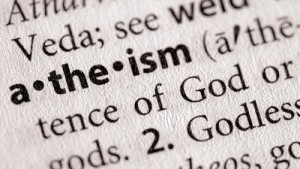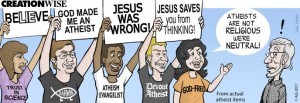Religious people are more tolerant of different viewpoints than atheists, according to researchers at a Catholic university.
A study of 788 people in the UK, France and Spain concluded that atheists and agnostics think of themselves as more open-minded than those with faith, but are are actually less tolerant to differing opinions and ideas.
Religious believers “seem to better perceive and integrate diverging perspectives”, according to psychology researchers at the private Catholic University of Louvain (UCL), Belgium’s largest French-speaking university.
Filip Uzarevic, who co-wrote the paper, said his message was that “closed-mindedness is not necessarily found only among the religious”.
He told Psypost: ““In our study, the relationship between religion and closed-mindedness depended on the specific aspect of closed-mindedness.
“Somewhat surprisingly, when it came to subtly measured inclination to integrate views that were diverging and contrary to one’s own perspectives, it was the religious who showed more openness.”
Dr Uzarevic’s paper, called “are atheists undogmatic?”, states that “irreligion has become normative” in some Western countries.
He inspected three aspects of mental rigidity in 445 atheists and agnostics, 255 Christians, and a group of 37 Bhuddists, Muslims, and Jews.
The study claims that non-believers measured lower than religious people in “self-reported dogmatism”, but were higher in “subtly-measured intolerance”.
Dr Uzarevic said: ““The idea started through noticing that, in public discourse, despite both the conservative/religious groups and liberal/secular groups showing strong animosity towards the opposite ideological side, somehow it was mostly the former who were often labeled as ‘closed-minded’.
“Moreover, such view of the secular being more tolerant and open seemed to be dominant in the psychological literature.”
The findings also said that the strength of a person’s belief in either atheism or religion is directly correlated to how intolerant they are.
Ask me anything
Explore related questions






